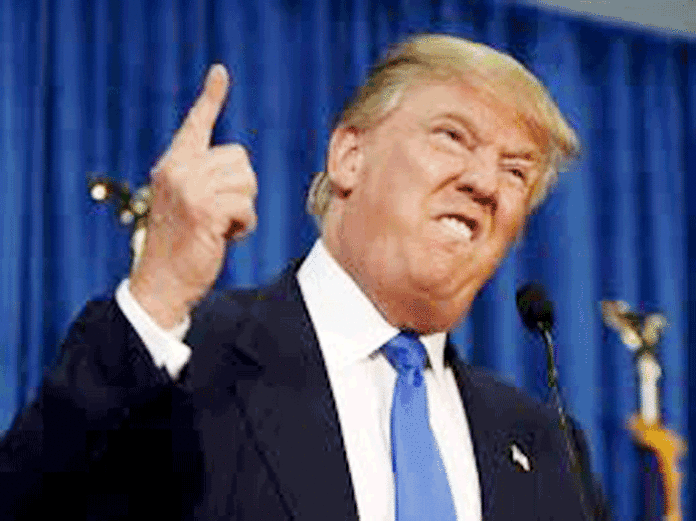By Dr. Matthew Ayibakuro
As I lay back and watched the news Wednesday night on the developing events in Washington, DC, the best phrase to describe what I felt at that moment is “sustained disbelief”: sustained because the presidency of Donald Trump has thrown up so many shockers over the last four years that nothing is hardly shocking anymore, including the events of Wednesday. In fact, when you speak to most liberal minded persons in the United States of America and elsewhere, the last four to five years sometimes feel like living in an alternative universe that you would have thought impossible just a decade ago.
We have come to trust so much in the supposedly inherent utilitarian value of electoral democracy in the post-war era that we are now scrambling to make sense of the diverse sour and grey fruits that electoral democracy has forced down our throats in the last half-decade. Personally, as a Nigerian, it started when our citizens voted out a liberal-minded, PhD-holding, equity-driven President seeking a second term, and replaced him with a former military dictator who has struggled to prove that he completed his secondary education before military school, and continues to pursue a brazenly ethnic agenda that has left the country in chaos.
Of course, there was the little matter of the Brexit vote in the United Kingdom, – the process of which has just been finalised a week ago – the election of Jair Bolsonaro in Brazil, who is on a mission to destroy the Amazon, the Five Star Movement in Italy, Rodrigo Duterte in the Philippines and many more. However, there is no doubt that the most notable and terrifying outcome of electoral democracy in recent times has been the election and resulting president of Donald J. Trump.
There is a lot that can be said about the many unbelievable things that Donald Trump has said and done, and gotten away with during his presidency, including his incitement of the events of Wednesday. These should, however, not be the major cause for concern in the bigger picture. These are regrettable actions that would come and go with the man, hopefully. The main question is how a modern democratic system in an educated and supposedly enlightened society like the United States of America produced an outcome such as the election of Donald Trump, despite his obvious regressive position on issues such as climate change, human rights, equality and fairness, religious tolerance and respect for humanity.
Over the last few years, I have spoken to people who believe that events like the election of Trump and what the world is witnessing currently in the United States is a sign that electoral democracy is not inherently better than other forms of government. There are more extreme views that consider these events as the unravelling of the message of democracy that the United States has championed around the world. Irrespective of one’s stand on this argument, what is clear is that leaders with extreme dictatorial and populist views are now finding success in manipulating electoral systems to gain access to power or otherwise institute populist policies.
In the long run, the effect of the Trump Presidency and the many other incredible fruits of electoral democracy over the last few years from the perspective of countries in the global North might be to engender a certain level of humility in preaching the message of electoral democracy around the world. The impression that elections and democracy are the unquestionable tools for achieving desired national development and global goals will no longer fly unchallenged. There is now ample anecdotal evidence to show that even a democracy as deep-rooted as America’s is still susceptible to deep cracks that will echo through time.
For countries and people in the global South, it is in our best interest not to be carried away by the theatre and slight feeling of schadenfreude at seeing democracy bear fruits like the siege of Capitol Hill in a country like America that has talked down on us for decades. Rather the focus should be on drawing useful lessons to protect our democratic institutions and processes from producing outcomes such as Donald Trump.
The reason for this is simple: Whilst the Republic Party and American democracy as a whole will not be the same again following the shockwave generated by the Trump Presidency, there is little doubt that they would recover in time and do their best in addressing the circumstances that got them here. They have the institutions and processes that would enable them do that; we don’t. If Trump was leading a country with a relatively young democracy like countries in Africa, Asia or the Middle East, there would be a real threat of civil war or the start of a dictatorship in America right now.
If we are to draw meaningful lessons from the ongoing events in Washington, DC, a good starting point would be to try to understand why over 70 million people voted for Donald Trump during the just concluded elections, despite his many misdeeds during his four years in the White House. It is important to understand the factors in society – from education to religion to economic circumstances and electoral systems – that made 70 million people decide that they would re-elect a leader like Donald Trump, irrespective of the consequences.
Closer to home, we have to understand why most of our educated friends and colleagues continue to be committed followers of Donald Trump, even going as far as holding rallies for him in Nigeria, praying for him and defending him even after he lost at the polls. Despite its many flaws, electoral democracy continues to be a preferred form of government due to its capacity to let every citizen have a say in who should lead or represent him or her. Inevitably, many, like Trump’s 70 million supporters, would have to accept that the person who is eventually selected would not be their choice.
The result of a refusal to accept is what separates the countries that have effective democratic and governance institutions from the countries that do not. As America tries to recover from its galabagalaba four years of Trumpism, we must all deal with the question of whether our democracy would survive if Donald Trump were a leader in our country?













